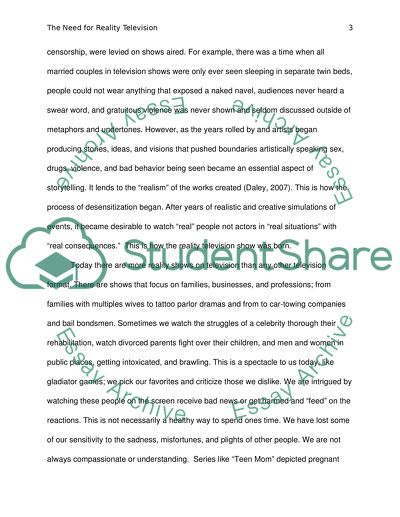Cite this document
(Desensitization Of Audiences By Reality Television Essay - 1, n.d.)
Desensitization Of Audiences By Reality Television Essay - 1. Retrieved from https://studentshare.org/media/1643320-argumentative-essay-with-research
Desensitization Of Audiences By Reality Television Essay - 1. Retrieved from https://studentshare.org/media/1643320-argumentative-essay-with-research
(Desensitization Of Audiences By Reality Television Essay - 1)
Desensitization Of Audiences By Reality Television Essay - 1. https://studentshare.org/media/1643320-argumentative-essay-with-research.
Desensitization Of Audiences By Reality Television Essay - 1. https://studentshare.org/media/1643320-argumentative-essay-with-research.
“Desensitization Of Audiences By Reality Television Essay - 1”, n.d. https://studentshare.org/media/1643320-argumentative-essay-with-research.


